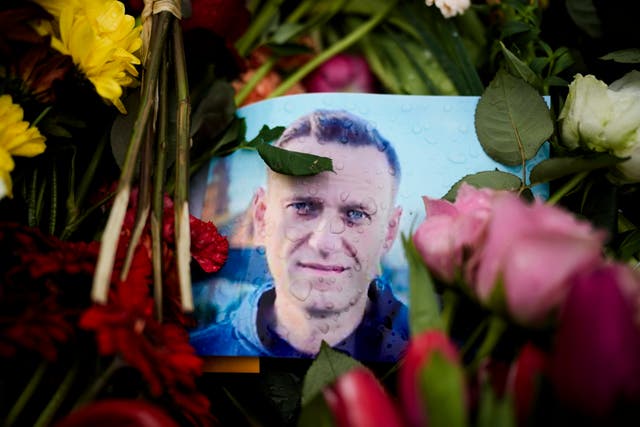
Clive Bull 1am - 4am
22 February 2024, 10:24

Vladimir Kara-Murza spoke from his prison cell as he serves a 25-year sentence for treason.
A jailed prominent opposition figure has urged Russians not to give up after the death of Alexei Navalny and claimed there is a state-backed hit squad taking out opponents of President Vladimir Putin.
British-Russian citizen Vladimir Kara-Murza is serving a 25-year sentence for treason.
He spoke from his prison cell while appearing via video link in court over a complaint against Russia’s Investigative Committee for what he believes were two poisoning attempts against him.
He claimed the committee did not investigate the attempts properly.
Mr Kara-Murza is one of several key opposition figures behind bars in Russia while others are abroad or dead.
He was found guilty of criticising Russia’s war in Ukraine and was handed a draconian sentence as part of an ongoing crackdown by Russian authorities against critics of the war and freedom of speech.
In January, he was moved to a prison in Siberia and placed in solitary confinement over an alleged minor infraction.
In the footage, he said: “We owe it … to our fallen comrades to continue to work with even greater strength and achieve what they lived and died for.”
The video was shared by the Russian Sota telegram channel.
Mr Kara-Murza says the attempts to poison him took place in 2015 and 2017.
In the first, he nearly died of kidney failure — though no cause was determined.
He was taken to hospital with a similar illness in 2017 and put into a medically-induced coma. His wife said doctors confirmed he was poisoned.
According to the video shared by Sota, Mr Kara-Murza alleged there is a “death squad within the Federal Security Service, a group of professional killers in the service of the state, whose task is to physically eliminate political opponents of the Putin regime”.

He said investigative journalists had shown the group of FSB officers participated in his poisoning, as well as Mr Navalny’s poisoning with a nerve agent in 2020 and the surveillance of Russian opposition politician Boris Nemtsov before he was killed in 2015.
On Monday, Ilya Yashin, an opposition figure jailed for criticising Russia’s war in Ukraine, alleged in a post shared on his behalf on his social media account that Mr Putin had killed Mr Navalny.
The Kremlin has previously denied any involvement in the illnesses and deaths of opposition figures, including Mr Navalny.
Meanwhile, Mr Navalny’s family are campaigning to have his body returned to them.
His mother filed a lawsuit on Wednesday at a court in the Arctic city of Salekhard, contesting officials’ refusal to release her son’s body, Russia’s state news agency Tass reported.
A closed-door hearing has been scheduled for March 4, the report said, quoting court officials.
Lyudmila Navalnaya has been trying to retrieve Mr Navalny’s body since Saturday, following his death in a penal colony in Russia’s far north a day earlier.
She has been unable to find out where his body is being held, Mr Navalny’s team reported.
Russian authorities have said the cause of Mr Navalny’s death is still unknown and have refused to release his body for the next two weeks as the preliminary inquest continues, they added.
Kremlin spokesman Dmitry Peskov rejected the allegations of a cover-up, telling reporters these are “absolutely unfounded, insolent accusations about the head of the Russian state”.